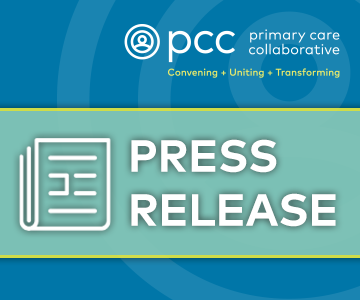You are looking at an archived version of our site. Please visit thepcc.org for a fresh, new experience!
You are here: Array » Finance Committee Whit ...
Finance Committee White Paper Offers Opportunity to Bolster Seniors’ Primary Care
FOR IMMEDIATE RELEASE
Media Contact: Tod Didier
tdidier@thepcc.org | 202-417-2069
Washington, D.C. (May 20, 2024) – The Primary Care Collaborative (PCC) thanks Senator Wyden and Senator Crapo for highlighting options to strengthen primary care for seniors and people with disabilities in their white paper, Bolstering Chronic Care through Physician Payment: Current Challenges and Policy Options for Medicare Part B.
PCC was encouraged to see lawmakers considering a hybrid payment model for primary care under traditional Medicare – an important change to expand access to high-quality, comprehensive primary care, improve health outcomes and generate cost-savings for Medicare.
“Every day it becomes harder and harder for people to find a primary care clinician and team they trust,” said Ann Greiner, President and CEO of the Primary Care Collaborative. “Introducing hybrid models will help bolster the primary care workforce and expand seniors’ access to high-quality, comprehensive primary care.”
Friday's white paper adds to the momentum behind the hybrid primary care payment proposals, sought by the PCC, its Better Health — NOW partners and Senators Whitehouse and Cassidy, who recently introduced the Pay PCPs Act (S. 4338). That legislation would ensure all Medicare primary care practices have access to hybrid payment models – giving them the flexibility they need to deliver better care to patients.
“The evidence is crystal clear: giving primary care viable alternatives to fee-for-service leads to better health and greater cost savings for Medicare,” said Greiner.
As noted by the Finance Committee’s white paper:
- Independent evaluations found that earlier primary care models kept Medicare beneficiaries out of the ED and away from unnecessary hospitalizations - with the best results from independent and ACO-associated practices.
- CBO's latest report found primary care-centric ACOs achieve twice the savings of others.
- ACOs with hybrid payments—including participants in the soon to be launched (Jan 25) ACO Primary Care Flex model announced by the CMS Innovation Center—can be an important pathway for shifting primary care away from per-visit volume and towards a more predictable and greater investment in primary care.
PCC looks forward to working with Chairman Wyden, Ranking Member Crapo and all the members of the Finance Committee to advance their goals this year.
About the Primary Care Collaborative
Founded in 2006, the Primary Care Collaborative (PCC) is the leading national, nonpartisan and multi-stakeholder voice advocating for better health for all Americans by strengthening primary care. The PCC unifies and engages diverse stakeholders in promoting policies and sharing best practices that encourage the growth of high-quality, comprehensive primary care.
Recent News
August 16, 2024
August 12, 2024
July 16, 2024
May webinar highlights: “The Commercial Market: Alternative Payment Models for Primary Care” Nate Murray explains w… https://t.co/KX9Wi2w6oY —
2 years 7 months ago
@CMSinnovates’ primary care strategy is rooted in a 2021 @theNASEM’s report which called #primarycare “foundational… https://t.co/glbPxvCysg —
2 years 7 months ago
@CMSinnovates has a new #primarycare strategy, envisioning “ACO-based primary care model tests that may focus on pr… https://t.co/aJGF1z411l —
2 years 7 months ago
- Page 1
- ››
Secondary menu
Copyright © 2024 Primary Care Collaborative




